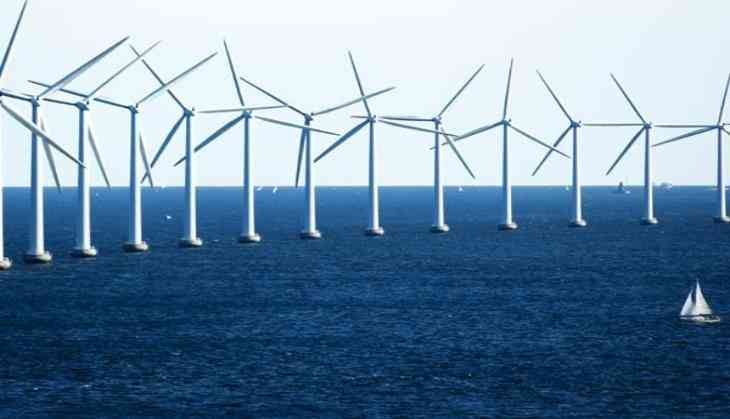
The European Union (EU) Council has exhorted member states to support Blue Growth through renewable energies.
The EU adopted Blue Growth Strategy in 2012 to support sustainable growth in the marine and maritime sectors as a whole as seas and oceans are drivers for the European economy and have great potential for innovation and growth.
The Council on Monday called upon the member states to manage the oceans and seas sustainably, promote renewable resource efficiency and renewable energies, remove barriers to growth, boost investment and strengthen trade cooperation.
The EU Council vowed to strengthen trade and business cooperation to maintain and develop further the EU's position in global Blue Growth value chains and continue providing jobs, supported in particular by cooperation with science, governments and civil society.
The Council has expressed its support to the 'blue economy' concept as a marine-and maritime based economy that is well-managed, sustainable and aims at reconciling ocean-related sustainable economic growth.
The economy has the potential to improve livelihoods and social equity for current and future generations and strengthen transparent, reliable and more secure food systems, based on the conservation of marine ecosystems and biodiversity and on the sustainable use of resources.
It further recommended to work within the Blue Growth Strategy to make the value of healthy and productive oceans for the blue economy to become more visible.
The council recalled the vital role of oceans for life on earth, economic growth, employment and innovation and highlighted that oceans and seas are facing increasing pressures.
It said that oceans and seas should be protected from the adverse consequences of climate change.
The Council also called for measures to ensure that outermost, peripheral, coastal and island regions are offered adequate growth opportunities.
Since its adoption, the Blue Growth strategy has registered progress in generating employment opportunities, and contributing to regional development especially in the EU coastal areas, outermost regions, and islands.
Elated with the initial success, the Council has reaffirmed to maintain the momentum in order to achieve objectives outlined in the 2012 Limassol Declaration on a Marine and Maritime Agenda for growth and jobs as a substantial component of the Europe 2020 Strategy.
The EU Council has asked the member states to work on supporting new technologies that contribute to the maritime economy and encourage closer cooperation between education and industry in order to help promote training and job opportunities.
It recommended that future work should focus on support to new technologies and sectors that have not yet used their cross-over potential by contributing to the maritime economy with know-how and expertise.
"The future direction of the Blue Growth Strategy should acknowledge the potential and importance of all relevant sectors of the blue economy crucial for value and jobs like ocean energy, aquaculture, maritime, coastal and nautical tourism, shipping, port-related activities, dredging, coastal and marine construction, marine technology, blue biotechnology, fisheries and food processing among others," the Council said.
The Council has vowed to promote resource efficiency and renewable energies, and has reaffirmed the value of marine ecosystem services as a driver for Blue Growth and for sustainable development.
The council called on the EU and its Member States to continue to support the sustainable development of the European marine and maritime economy in the context of the Multiannual Financial Framework (MFF) 2014-2020 and without prejudice to any future discussions.
It has asked the EU and its Member States to identify potential gaps and challenges, mainly those posed by climate change and insularity, to ensure that the outermost, peripheral, coastal and island regions are offered adequate growth opportunities and benefit from all the relevant funding streams without prejudice to any future discussions.
The Council advised the member states that "innovative actions in those regions should respond to those challenges and inefficiencies by facilitating access to markets and services such as e-health, water adequacy, energy efficiency, promotion of circular economy, as well as research to increase the knowledge base on relevant strengths and weaknesses, including on coastal erosion, desertification and ocean acidification".
-ANI


